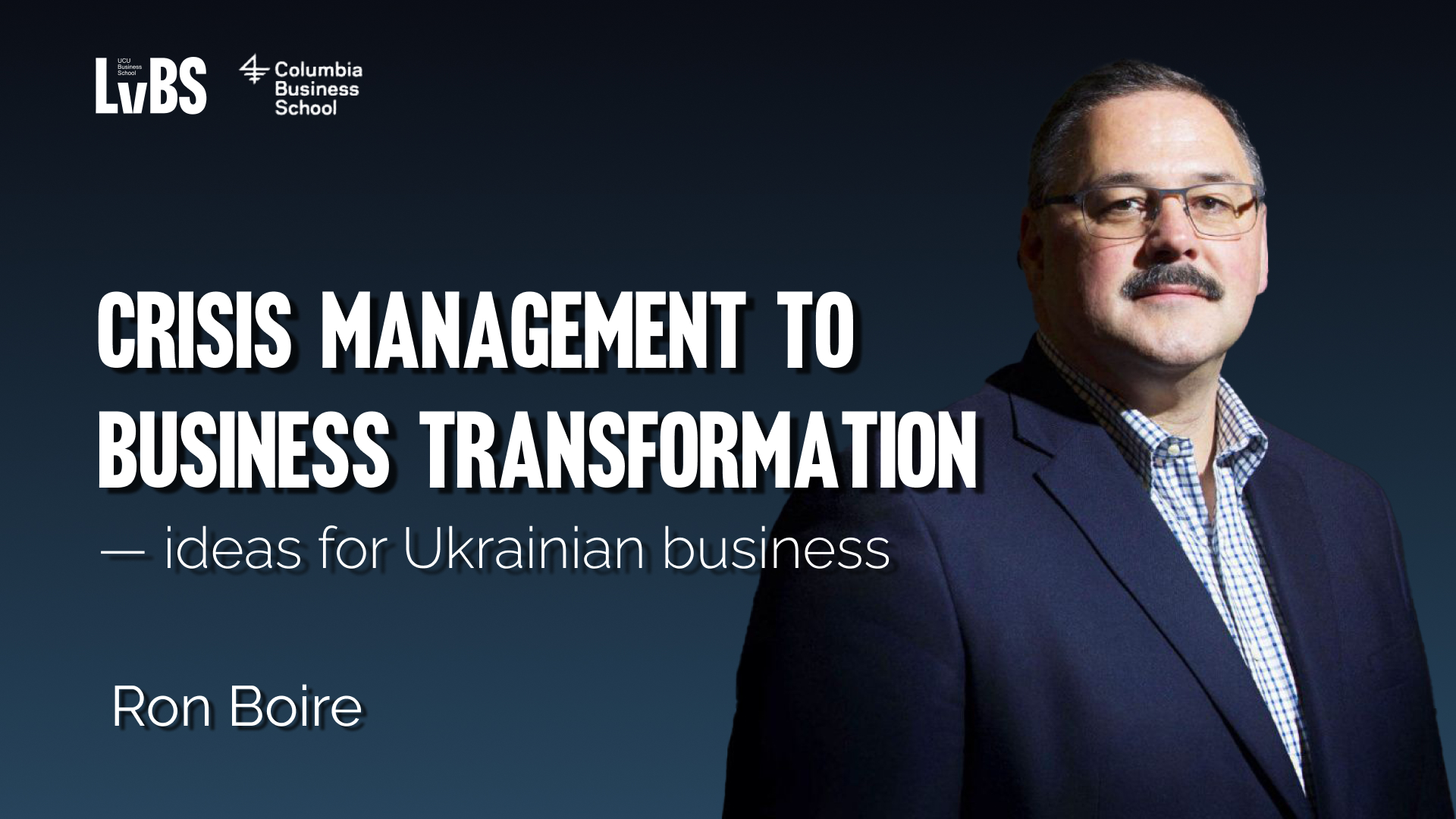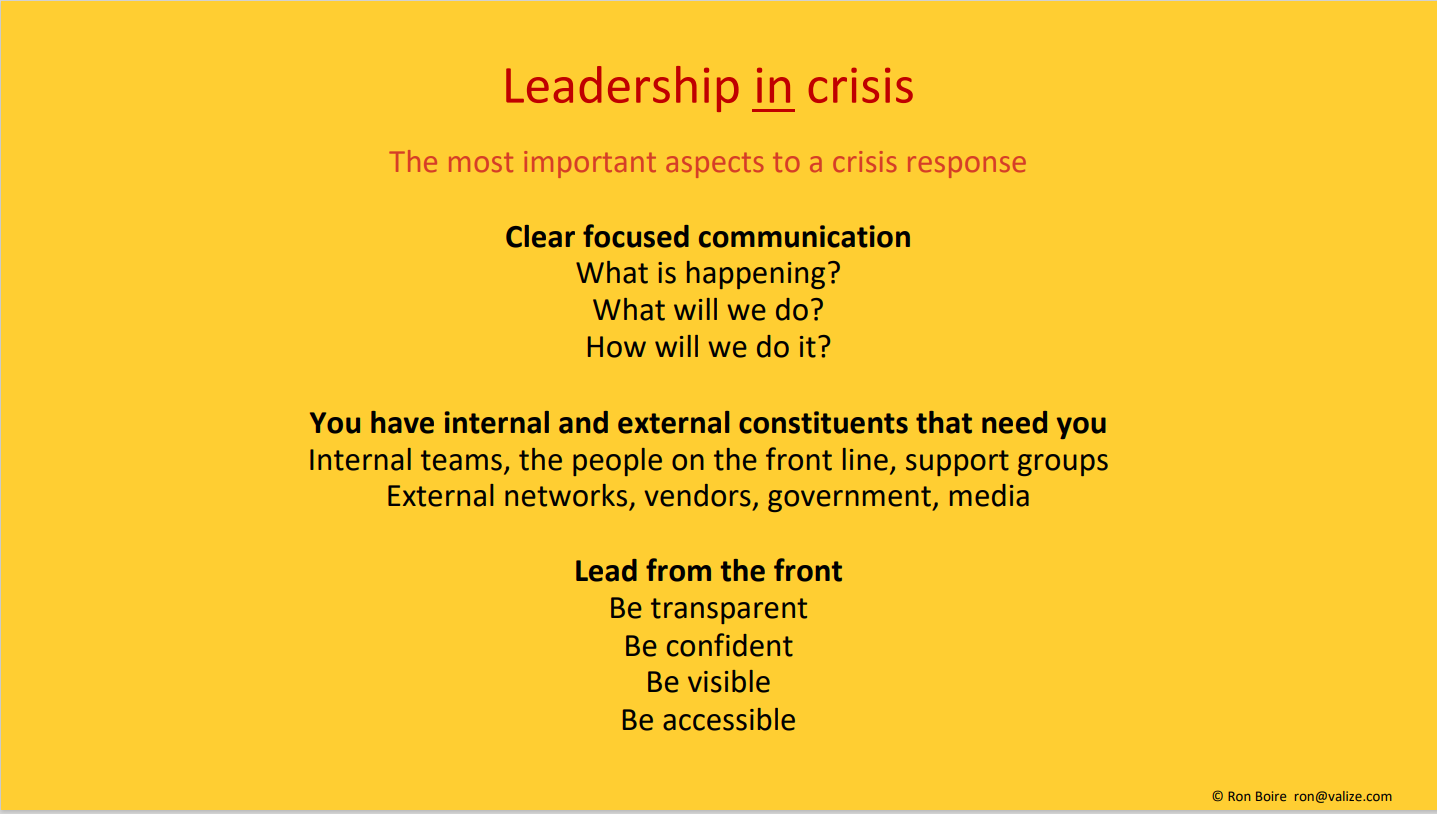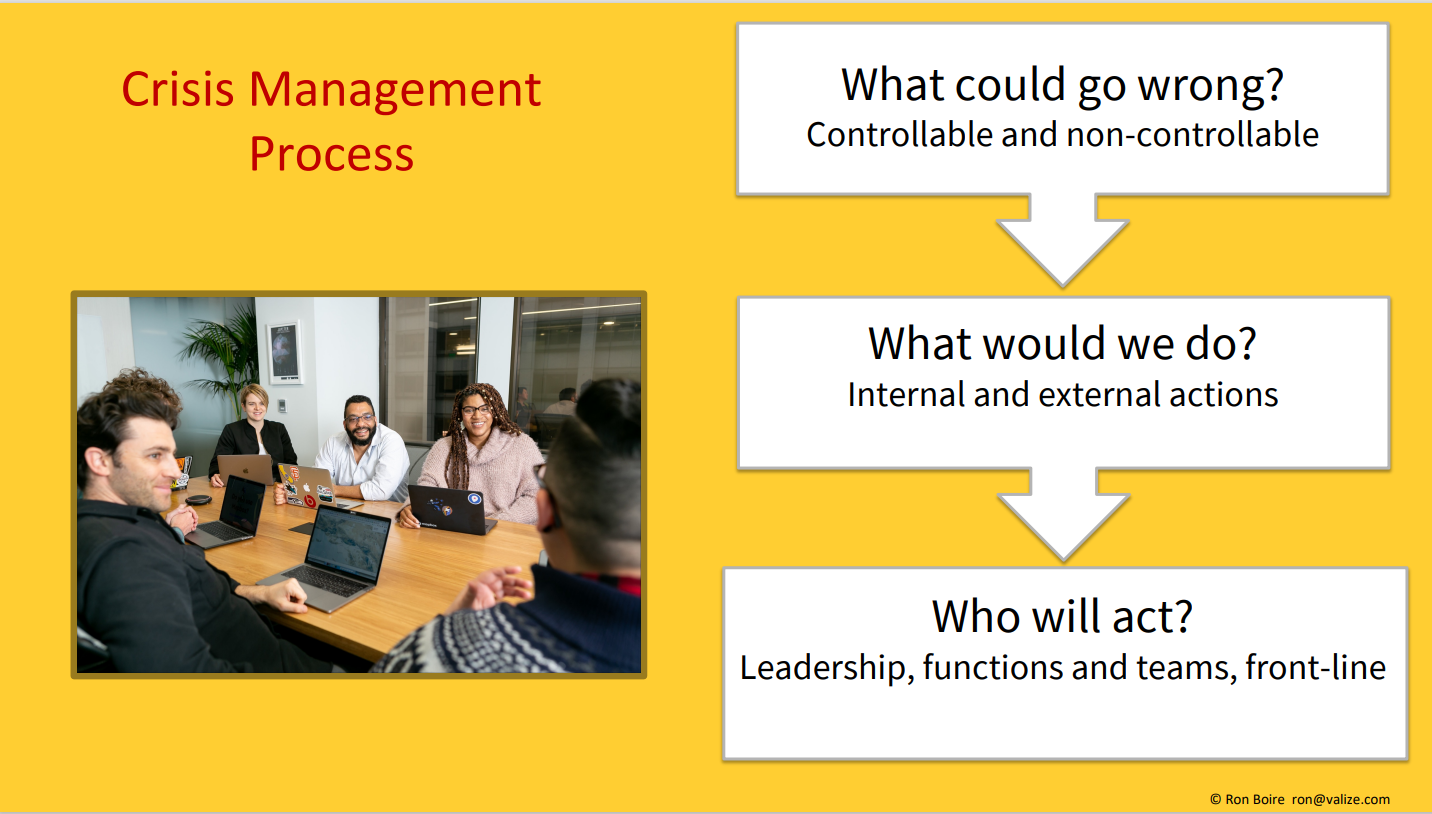«Most of the risk assessment tools and frameworks are only as good as the people who actually implement them. And some of the best ones are just made by smart people who know their business and know the culture of their company» – Ron Boire, Columbia Business School MBA alumni, partner at Valize, and principal at the Upland Group. During the webinar, Ron shared his own experience on the topic of crisis management and provided some plans of action in times of uncertainty.

Is leadership the most important aspect of crisis management?
I have a fundamental philosophy that every person is a leader in some way. There’s no such thing as people that are just leaders and just doers. Leaders do and doers lead. So it’s critically significant that everybody thinks that they have a role in leading through a crisis, taking action, making decisions, and making things happen.

Leadership is crucial during a crisis, and here are some fundamentals of it:
- Clear focused communication. Action is a keyword in crisis management. The way you are going to take those actions and communicate those at every level in your organization is absolutely critical.
- Support your internal and external constituents. Apparently, if you’re in a crisis, there are people on your team, group, or family, that need you to act and lead. There is your internal team that wants to know what they have to do, and who gets to make decisions. And there are also external constituents, like suppliers and government agencies, that need you too.
- Leading from the front means being transparent, confident, and accessible. It is significant, to tell your team the truth, even when it really hurts. You should be confident in your process and be visible because people need to know that someone’s in charge and there’s a plan. And it is also essential to provide the access to leadership and resources.
How to deal with trust issues?
Trusting people that make the right decisions rarely ends up with a catastrophic problem, especially, in large organizations. Trust is a dynamic thing, and one of the things that accelerate it is a crisis. You can see how people really behave when they’re in distress. And in my experience, when you say, do the right thing, the vast majority of people will do the right thing. And when I do the wrong thing, the whole organization kind of recognizes that. It is extremely rare that someone in a crisis shows that they didn’t deserve your trust. So don’t worry about that, worry about what they’re going to do to make it better.

Crisis management process.
Ideally, you should start planning before a crisis really happens. The following questions will help you to structure and prioritize the tasks while making a plan.
- What could go wrong? – There are controllable crises that can be prevented. In this case, you have technology implementation, and you’re putting things in place to make sure that it doesn’t actually occur, you have a team in place that understands what could go wrong in real-time. But unfortunately, most crises are non-controllable.
- What could we do? –It’s thinking through a problem before you actually have a problem and deciding what your internal and external actions would be.
- Who will act? – You should think of the teams on the frontline and plan their actions.
Six steps of the crisis management plan.
- Create the leadership team. Leaders need to be identified and put in place prior to a crisis. Unlike other types of management, crisis management really requires strong leadership engagement, you can’t have leaders on the sidelines sending emails. They need to be out and be seen in the process.
- Risk assessment sessions. It doesn’t mean that you will identify all the risks. For example, there’s an issue that happened on the manufacturing side, we didn’t plan for that, and we didn’t know it was going to happen. But we had a list of things that could happen. And we work through those lists.
- Evaluate the potential impacts. Think about it, if this happens, what could the impact on the business be, and how do you work through those impacts?
- Make an action plan. Go through such details as who you would talk to, how you would communicate, and what your step-by-step process would look like. Nevertheless, when something happens, it’s always different. As they say, no plan survives contact with the enemy. So having the flexibility once your plan is in place is absolutely critical.
- Stress-test your plan. Look for errors, try to make the plan not work before you have to actually do it.
- Keep up to date. It means that keeping your thought process up-to-date is more important than the plan itself.
How to survive as a company during a crisis?
In general, companies and people who are damaged by a crisis are not prepared for the crisis. And for most companies that failed in a crisis, this tended to be financial. They have taken too much credit and haven’t planned their resources properly, like inventory and people. They made mistakes leading up to the crisis, so when they had an actual crisis, they failed.
As a family, If you look in the refrigerator, and there’s one little jar of peanut butter, or there’s no gas in the car, you’re not prepared to live your life. And businesses have to be prepared to live their lives as well.
Going through almost any crisis, whether it’s business or personal, you’re always stronger on the other side. You’ve done things that you didn’t know you could do. Businesses do things they never imagined they could do. We never imagined that we would be aligning, creating an alliance with our biggest competitor to deliver water to Louisiana. The same is true with people. You go through a crisis, and you say I never knew I was so strong. And then you’re even more prepared and your children are more prepared because now you’re a stronger, better person.
Noted down by Olena Mordacheva




















